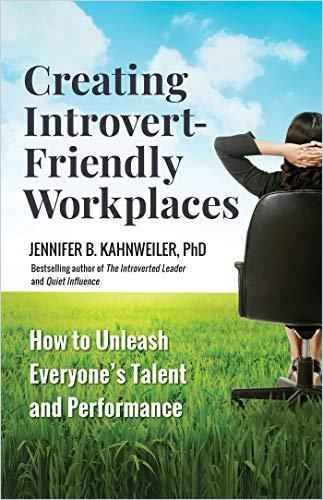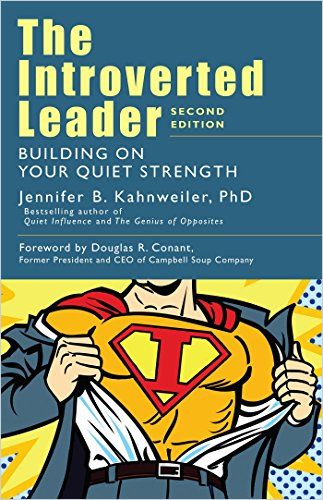Susan Cain

Susan Cain is the author of the bestseller Quiet: The Power of Introverts in A World That Can’t Stop Talking, which has been translated into 40 languages. Her 2012 TED talk has been viewed over 30 million times and was named by Bill Gates as one of his all-time favorite talks. Cain’s work sparked a worldwide conversation and changed the way we see introverts, as well as the way introverts see themselves. Her 2022 book, Bittersweet: How Sorrow and Longing Make us Whole, gives voice to those drawn to a bittersweet mindset – which she explains can lead to creativity, connection and joy.
1. Susan Cain’s Key Findings and Messages
- Introverts – those who prefer quiet, low-key environments – offer worthy contributions of creativity, talent and intellect.
- The cultural bias against introverts hampers innovation and productivity, as well as opportunities for better leadership.
- Society, education and business would benefit from a cultural balance between introversion and extroversion.
- Joy and happiness cannot exist without their opposites. “[L]ight and dark, birth and death—bitter and sweet – are forever paired.”
- Suffering can deepen human connection, and our sense of longing can move us forward.
There’s zero correlation between being the best talker and having the best ideas.
Susan Cain
2. Why Do They Matter?
Though a third to a half of the total population is introverted, most classrooms and offices are designed for extroverts. Meanwhile, our extroverted culture too often overlooks the extraordinary contributions introverts quietly make. In Quiet, Susan Cain gives introverts the tools to better understand themselves and take full advantage of their strengths. An introvert herself, Cain has become a self-appointed advocate for the soft-spoken and reflective, helping millions of introverts around the world find a voice. In Bittersweet, Cain serves as an advocate for those drawn to a bittersweet mindset – people who tend to be highly sensitive, spiritual and acutely aware of passing time. She contrasts the latter to the “sanguine” types celebrated in modern culture for their upbeat nature and ambition. Embracing our bittersweet side of our nature, she posits, will lead us to be more complete and fulfilled human beings.
3. To Understand Cain’s Work, Start Here
Susan Cain’s 2012 TED talk catapulted her from (quiet) obscurity to worldwide fame. In her talk, she makes a strong case for the creative potential of a quiet mind. Her lesson: Listen to introverts, even if it means listening a little bit harder.
Highlights:
- Introverts – those who prefer quiet, low-key environments – offer worthy contributions of creativity, talent and intellect.
- Modern culture tends to overlook or discount introverts, including their creative and leadership potential.
- People should enable independent work in offices and classrooms, cultivate the practice of introspection, and ensure that introverts’ voices are heard.
The more freedom that we give introverts to be themselves, the more likely that they are to come up with their own unique solutions to…problems.
Susan Cain
Susan Cain’s latest work focuses on another deeply personal question that has become a recurrent theme throughout her adult life: “Why do I find sad music so uplifting?” To answer this question, Cain embarked on another research journey, which she sums up in her 2022 TED talk.
Highlights:
- People play the sad songs on their playlists over four times more frequently than the happy songs.
- Sad music evokes “sublime emotions” such as a sense of longing, wonder and transcendence.
- Modern culture wants us to put on a smile at all times. Avoiding the dark and disregarding our longing, however, leaves us emotionally impoverished.
Follow your longing where it’s telling you to go, and may it carry you straight to the beating heart of the perfect and beautiful world.
Susan Cain
4. Evaluate the Details: Cain’s Books
Cain’s breakout bestseller, Quiet: The Power of Introverts in a World That Can’t Stop Talking, shows how American culture misunderstands and undervalues introverts, and thus fails to take full advantage of their contributions. The book also offers practical advice on how to navigate life as an introvert in an extroverted culture. Here are a few highlights:
- Introversion and extroversion are preferences for certain levels of stimulation.
- Introverts prefer less external stimuli – noise, interactions, new experiences, social expectations – and like to investigate a novel situation before getting involved.
- Throughout the ages, introverts have left their mark on history. Famous 20th-century introverts include Eleanor Roosevelt, Al Gore, Warren Buffet and Mahatma Gandhi, among many others.
- Many successful CEOs are introverts. They excel at leading creative and innovative employees because introverts are more likely to listen and implement suggestions.
- Public schools and most workplaces do not facilitate or encourage solitary work but encourage team work instead.
- While teamwork and collaboration are important, introverts tend to show their leadership with innovation and brilliance when given a chance to work independently.
- Introverts need to rely on their intuition and honor their style of sharing their ideas.

Harness the Strength of Introverts to Change How You Lead
Franklin Covey CompanyCain wrote three follow-up books. Quiet Power: The Secret Strengths of Introverts is written for young introverts (adolescence to mid-20s). It offers guidance on navigating school, family life and friendships while finding their own place in the world. Quiet Power: The Secret Strengths of Introverted Kids is written for an even younger audience. Illustrated with comic-style art, it uses stories of kids tackling the challenges of not being extroverted while making a mark in their own quiet way. Quiet Journal, meanwhile, offers a self-assessment quiz for introverts and journal writing prompts for self-exploration.
Cain’s 2022 book, Bittersweet: How Sorrow and Longing Make us Whole explores the value of melancholy: an acute awareness of the transience but also inherent beauty of life, and a deep a sense of longing for a place or past long gone.
- Sad music can evoke a profound sense of beauty, human connection and transcendence.
- People with a bittersweet mindset tend to be highly sensitive, spiritual and acutely aware of passing time.
- Modern culture tends to value “sanguine” types more – people who are upbeat and ambitious. Yet many great artists, philosophers and religious figures have embraced the bittersweet and turned suffering into beauty.
- “Bittersweetness” fosters creativity and fulfillment. By always wanting to appear upbeat and positive, you prevent yourself from leading a fulfilled life.
- Joy and happiness cannot exist without their opposites. “[L]ight and dark, birth and death – bitter and sweet – are forever paired.”
- Sharing trying times with others deepens human connection.
- Our sense of longing can move us forward.
5. Additional Resources by Topic
- Not sure if you are an introvert? Take a self-assessment test.
- Are you parenting an introverted child? Receive practical insights and tips on the go by subscribing to Susan Cain’s podcast.
- Introverts can emerge as better leaders – In The Introverted Leader, Jennifer Kahnweiler offers well-informed strategies for introverted middle managers to get ahead and for their extroverted counterparts to bring out the best in their introverted staffers.
- Leaders must act as champions for introverts – Everybody talks about the importance of diversity in the workplace, yet few pay attention to the unconscious biases we continue to hold against introverts. In Creating Introvert-Friendly Workplaces, Jennifer Kahnweiler explains how to make workplaces more introvert-friendly.
- Picking the right career starts with understanding yourself – Start by examining your personality-type profile to assess the best career options given your strengths and weaknesses.
- Communication is a learnable skill – Small talk may not be the introvert’s cup of tea. Yet anyone can master the art of small talk and navigate social encounters with aplomb, Diane Weston shows in Small Talk.
- How bittersweet are you? Find out your score by taking Susan Cain’s quiz.
6. Deep Dive: Creating a Workplace Where Everybody Is Heard
Find out more about Susan Cain’s main topics in our related Journal articles:
About Our Thought Leader Profiles
Biographies can be found on Wikipedia. What you find here are instant practical insights into the thinking of important contemporaries – with handy references to the summaries of their works at getAbstract, of course.








